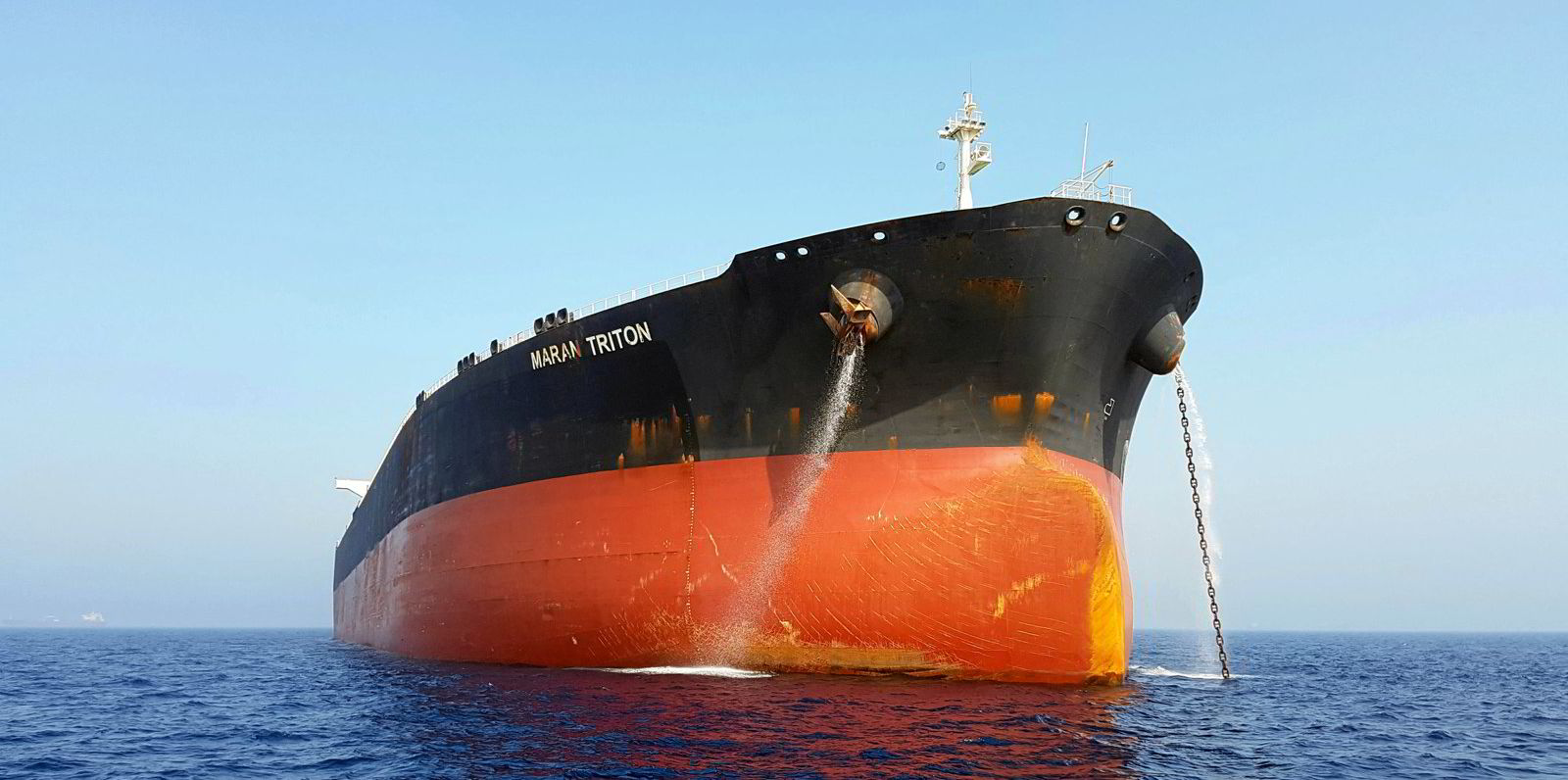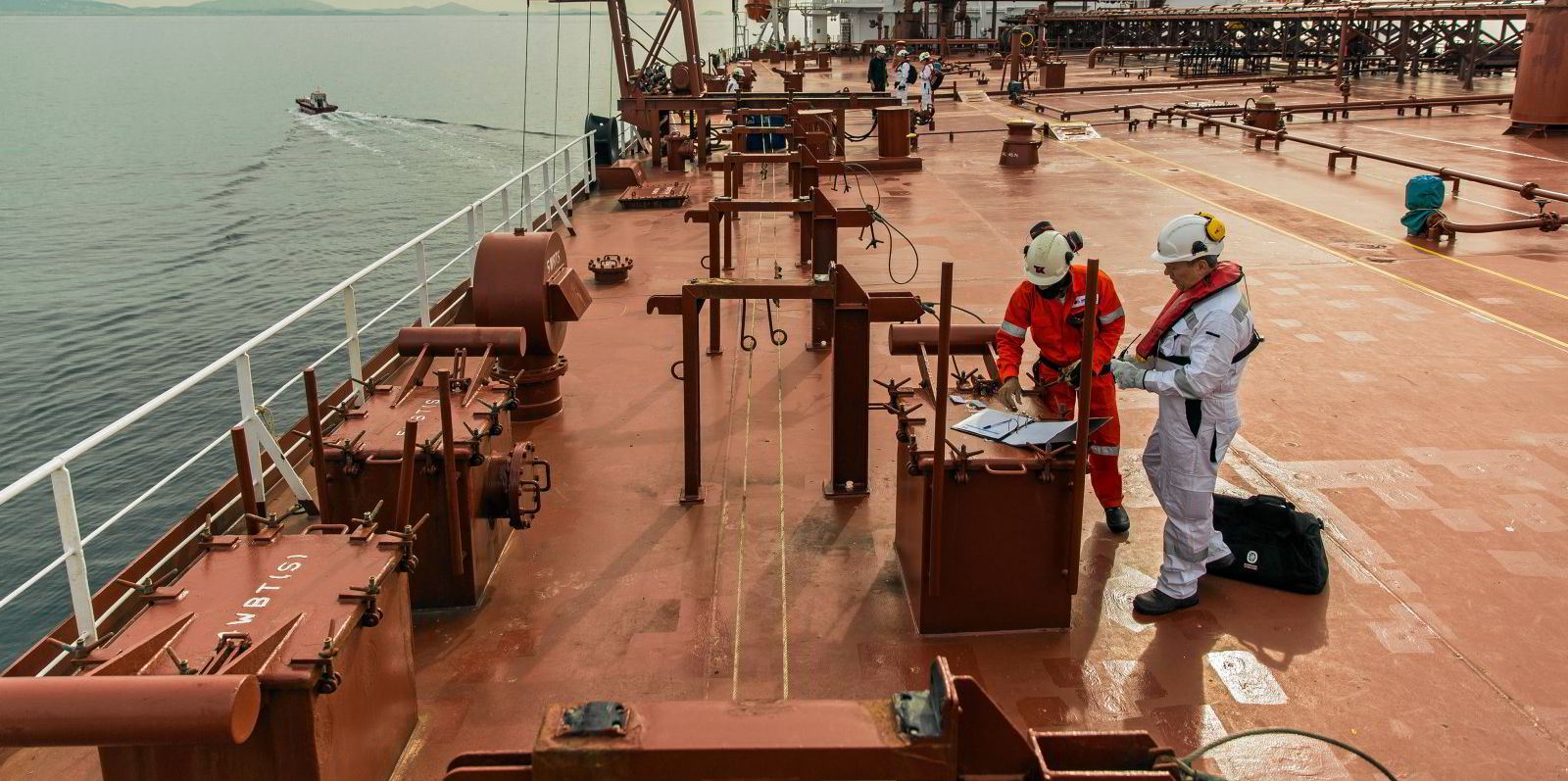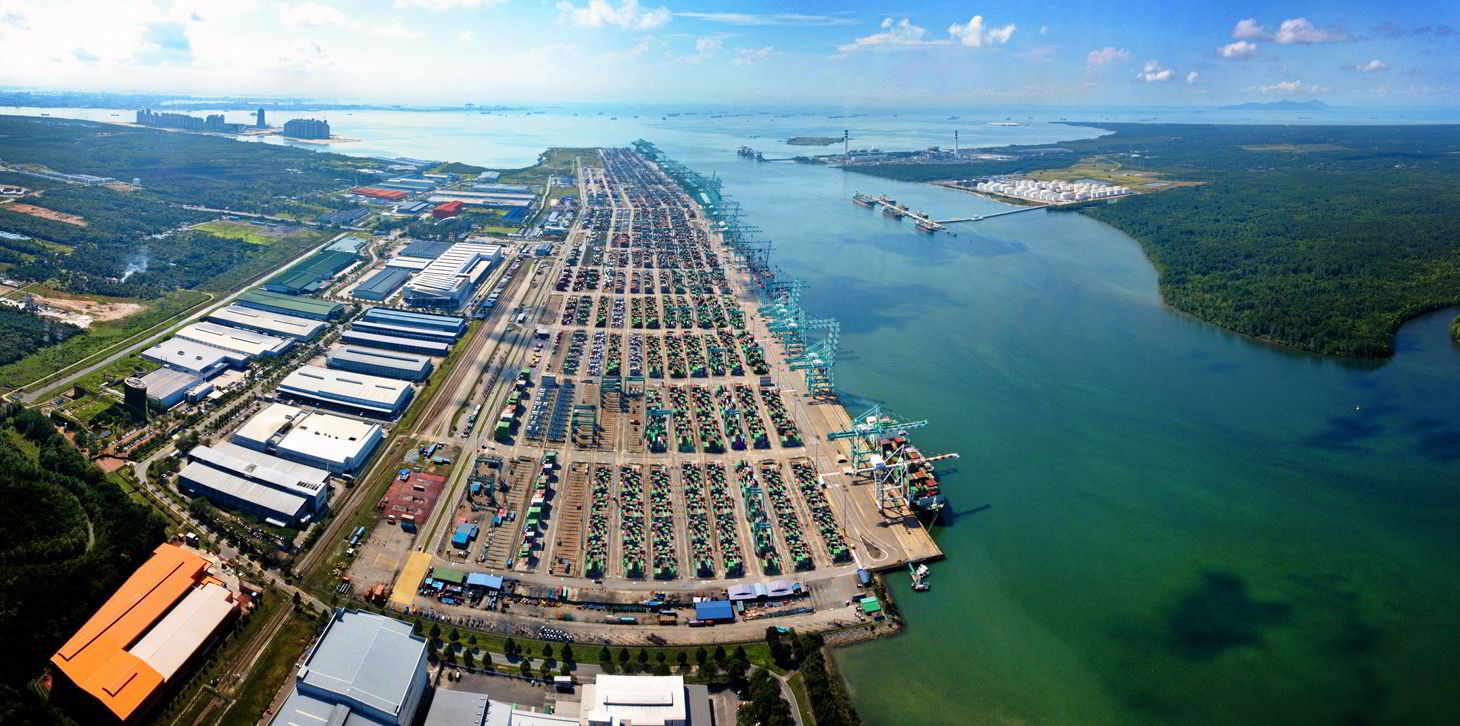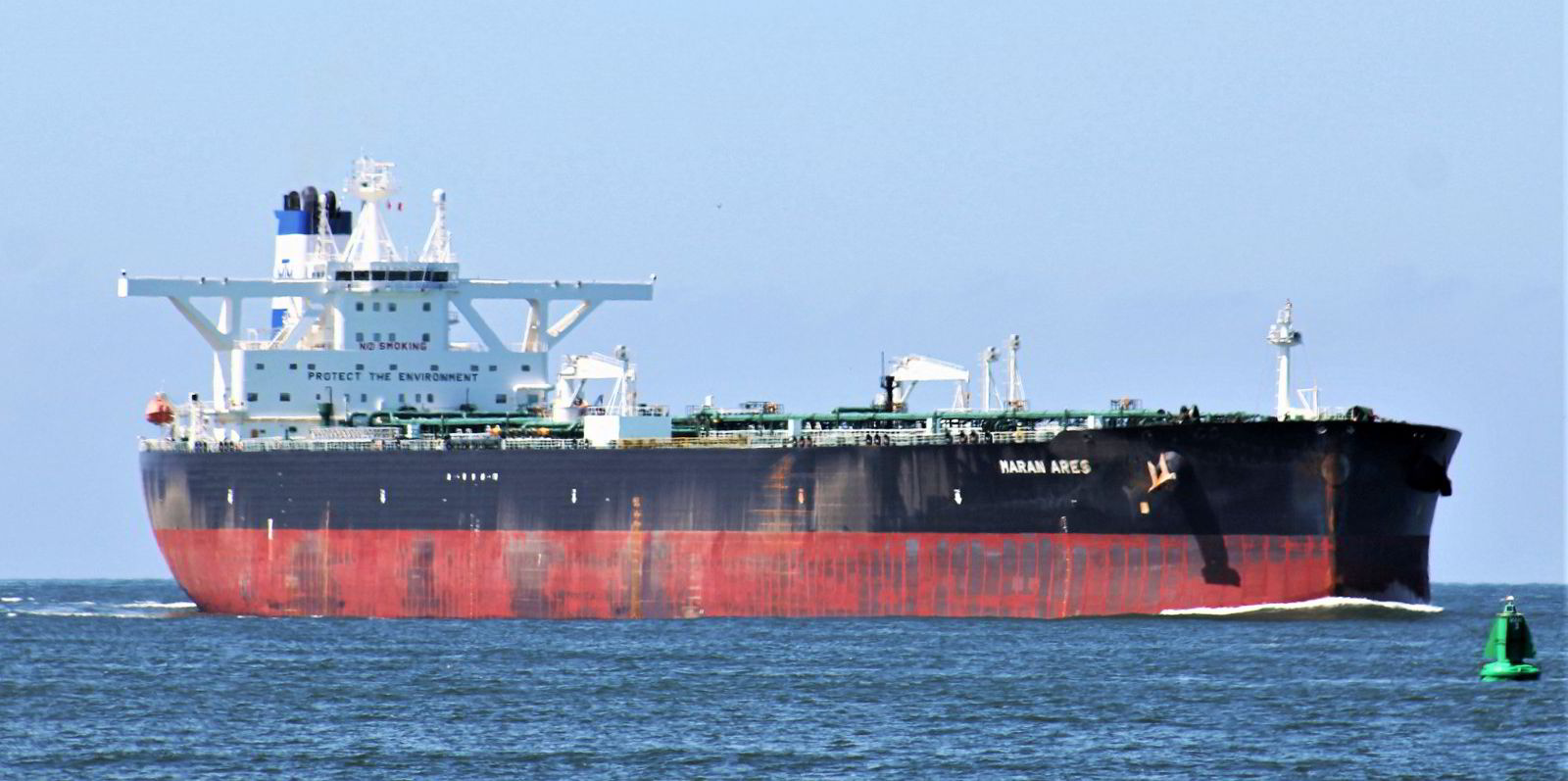Greece’s Maran Tankers Management has reportedly sold another vintage VLCC in the strong secondhand market for tankers.
Brokers reported the Angelicoussis family’s tanker outfit secured $29m in a sale of the 319,000-dwt Maran Triton (built 2003). The buyer is not known.
The price tag for the Hyundai Heavy Industries-built vessel surprised some in sale-and-purchase circles.
“This sounds high to me as the ship does not have a ballast water treatment system,” one market player said. “Going by the last similar deal, the VLCC should be getting something like $27m or $28m.”
Clarksons data shows the tanker last underwent a special survey in August 2018 and has a ducted propeller.
“The price is pretty firm,” another S&P source said. “Maybe the owner offers a good delivery timing and location.”
TradeWinds has approached Maran for comment.
VesselsValue data shows the shipowner has sold eight of its oldest VLCCs since November 2019. Those ships were built between 1999 and 2003.
Meanwhile, the company is due to take delivery of two VLCCs from Daewoo Shipbuilding & Marine Engineering this year and four from Samsung Heavy Industries in 2023.
Spot tanker rates have stayed below operating expenses for most owners in recent quarters, with tepid vessel demand and severe tonnage oversupply across various vessel classes.
But secondhand tanker prices have been on the rise this year on firm steel prices, forecast rate recovery later, and strong appetite for aged ships from players in risky trades, according to experts.
Reflecting on the bullish steel market, sources said the 319,000-dwt VLCC Maya VN (built 2003) was recently sold for demolition at $560 per ldt, or nearly $24.8m on a lump-sum basis.
The deal was done on an as-is Indonesia basis, and vessels delivered to ship breakers in the Indian subcontinent are expected to fetch a higher demolition rate.
Brokerage Banchero Costa research head Ralph Leszczynski estimated that the buyer of the Maran Triton would be paying a $4m premium to the scrap value.
“This is probably realistic as you can still squeeze a few years of trading out of the ship,” he said.
“The ship is a currently trading vessel, not doing storage ... It is in good condition.”
But Leszczynski suggested tanker buyers could be disappointed if they expected any immediate upturn in the freight market.
“Until oil demand gets back to pre-pandemic levels, there is no chance that spot tanker rates can recover to any reasonable level,” he said.







